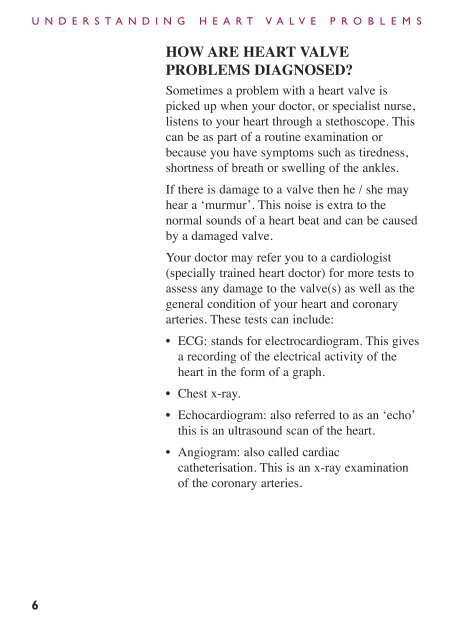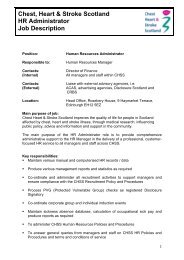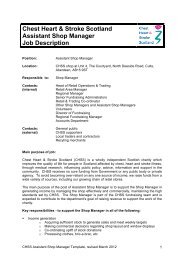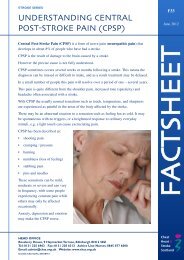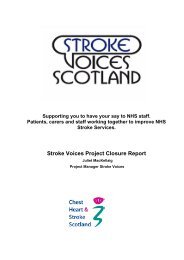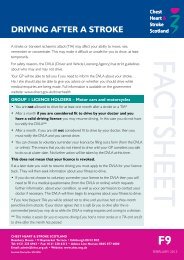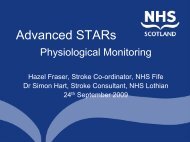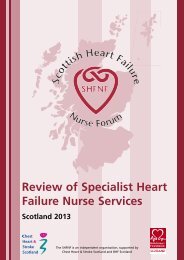CHSS H8 Heart Valves - Chest Heart & Stroke Scotland
CHSS H8 Heart Valves - Chest Heart & Stroke Scotland
CHSS H8 Heart Valves - Chest Heart & Stroke Scotland
Create successful ePaper yourself
Turn your PDF publications into a flip-book with our unique Google optimized e-Paper software.
U N D E R S T A N D I N G H E A R T V A L V E P R O B L E M S<br />
HOW ARE HEART VALVE<br />
PROBLEMS DIAGNOSED?<br />
Sometimes a problem with a heart valve is<br />
picked up when your doctor, or specialist nurse,<br />
listens to your heart through a stethoscope. This<br />
can be as part of a routine examination or<br />
because you have symptoms such as tiredness,<br />
shortness of breath or swelling of the ankles.<br />
If there is damage to a valve then he / she may<br />
hear a ‘murmur’. This noise is extra to the<br />
normal sounds of a heart beat and can be caused<br />
by a damaged valve.<br />
Your doctor may refer you to a cardiologist<br />
(specially trained heart doctor) for more tests to<br />
assess any damage to the valve(s) as well as the<br />
general condition of your heart and coronary<br />
arteries. These tests can include:<br />
• ECG: stands for electrocardiogram. This gives<br />
a recording of the electrical activity of the<br />
heart in the form of a graph.<br />
• <strong>Chest</strong> x-ray.<br />
• Echocardiogram: also referred to as an ‘echo’<br />
this is an ultrasound scan of the heart.<br />
• Angiogram: also called cardiac<br />
catheterisation. This is an x-ray examination<br />
of the coronary arteries.<br />
6


